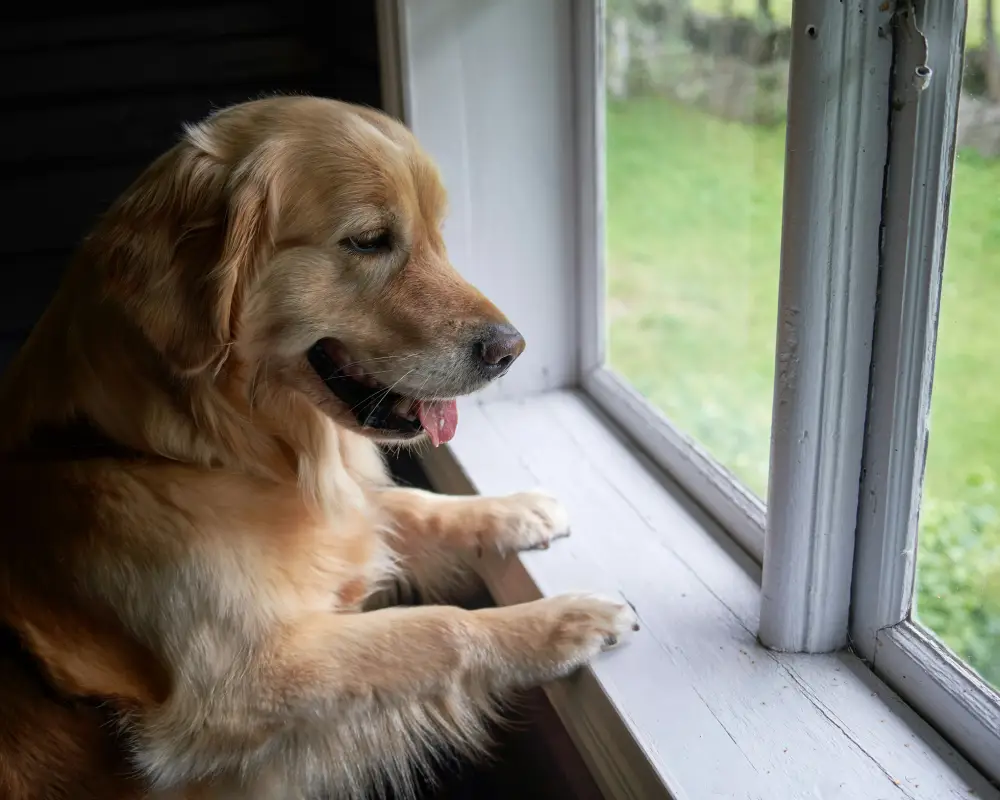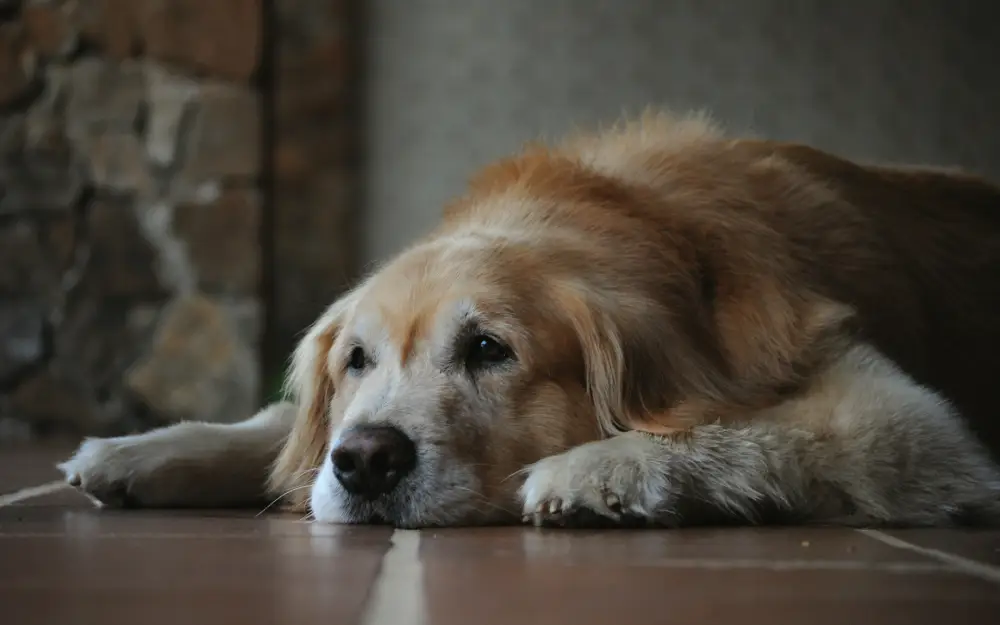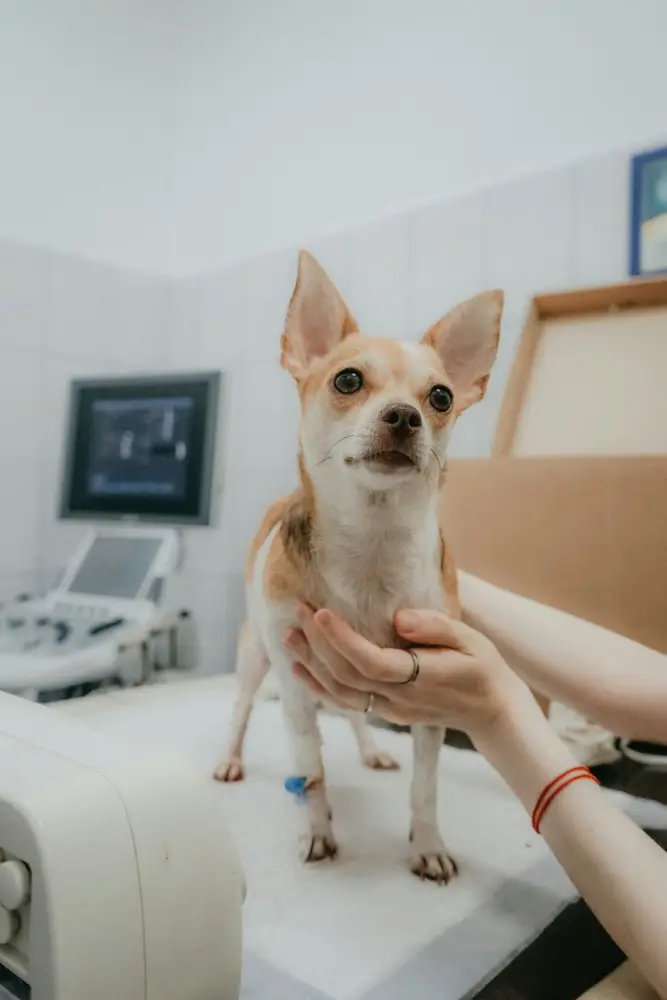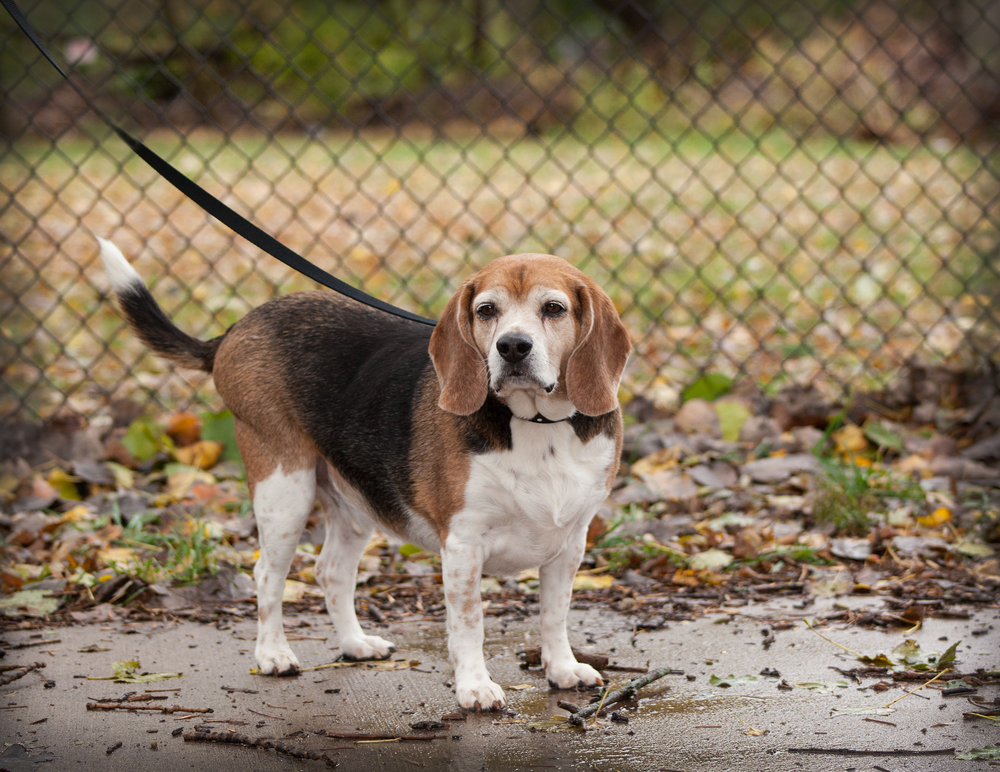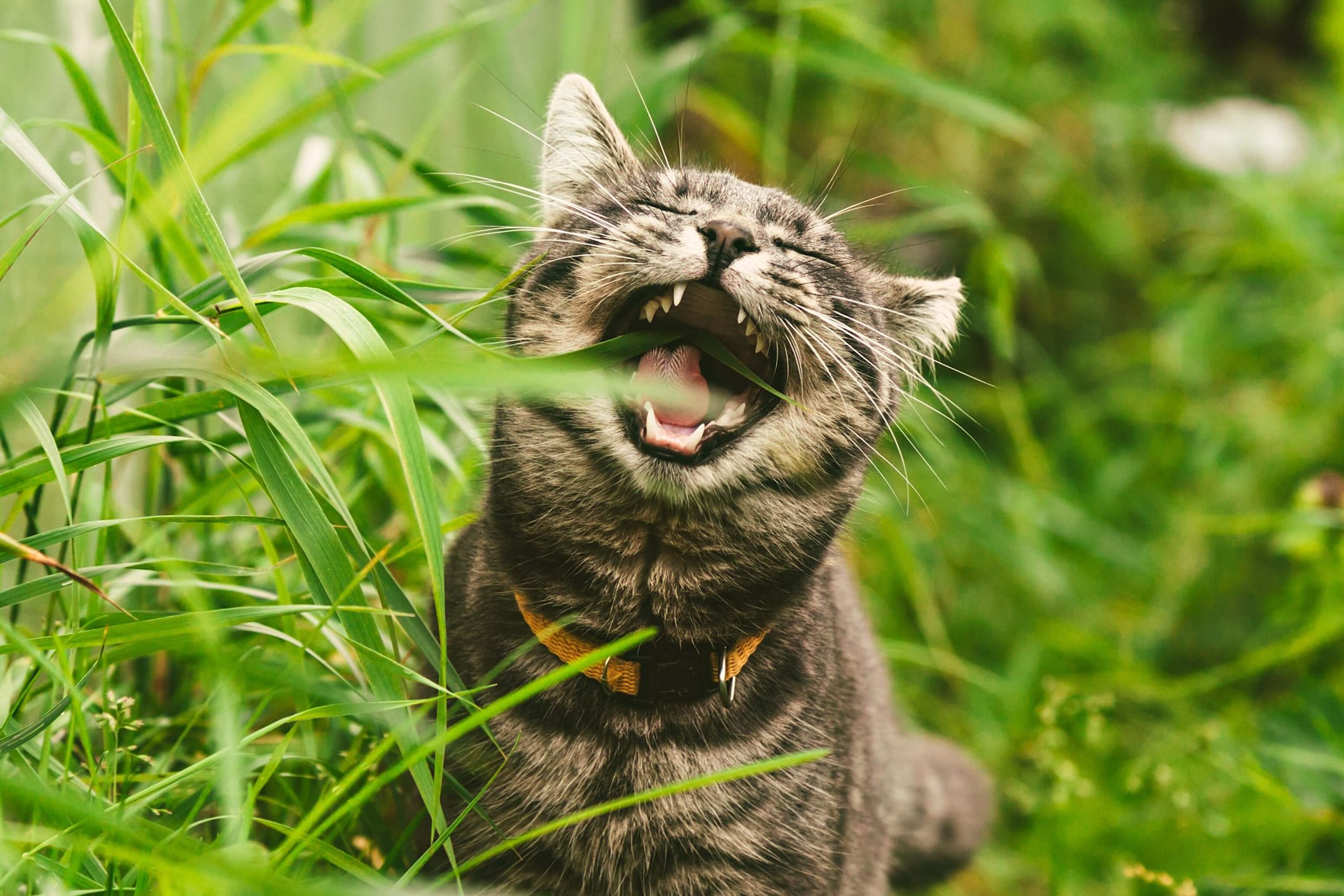
Is Eating Grass Dangerous For Cats?
June 25th 2021
Most of us are familiar with seeing our cats enjoying the sunshine and nibbling on fresh spring grass, but does it really indicate ill-health or is it harmless?
Why do cats eat grass?
There are several theories about why cats might eat grass, however the real reason is unclear. Some research suggests that eating grass could be instinctual and evolved to help expel digestive parasites, whereas others believe that eating grass can help dislodge hairballs by initiating vomiting. However, some cats seem to really enjoy eating grass and do not vomit as a result.
Unfortunately, there are some dangers around eating grass, and whilst that doesn’t mean we should restrict our cat’s access, there are things we should be aware of. Cats eating grass may accidentally chew on toxic plants or foliage contaminated with pesticides, and grass can become lodged in a cat’s throat after becoming stuck at the back of the nostril.
What signs should I look for?
Signs that your cat may be suffering from trapped grass blades are similar to cat flu, and include sneezing, coughing, retching, discharge – usually from one nostril and difficulty eating. Unfortunately, it can be difficult to see down their throat due to the position of the tongue, and an exam under sedation or anaesthetic is usually necessary. Once anaesthetised, the veterinary surgeon can carefully remove the grass.
.
Watch our video below of grass removal from Tom’s throat, we are pleased to report that Tom recovered quickly and is back to eating his favourite food.
How can I keep my cat safe?
To keep your cat as safe and happy as possible you could consider cultivating some grass to keep indoors. This will allow your cat to indulge in this habit, eating shorter blades from non-contaminated sources.
.
It is also a good idea to ensure that you have no toxic plants indoors or outside, and finally, if you notice that your cat is trying to vomit but finding it difficult then consult your veterinary practice to ensure that grass has not become lodged in their throat.

 Shop Dog
Shop Dog
 Shop Cat
Shop Cat
 Vet Know-how
Vet Know-how Contact
Contact